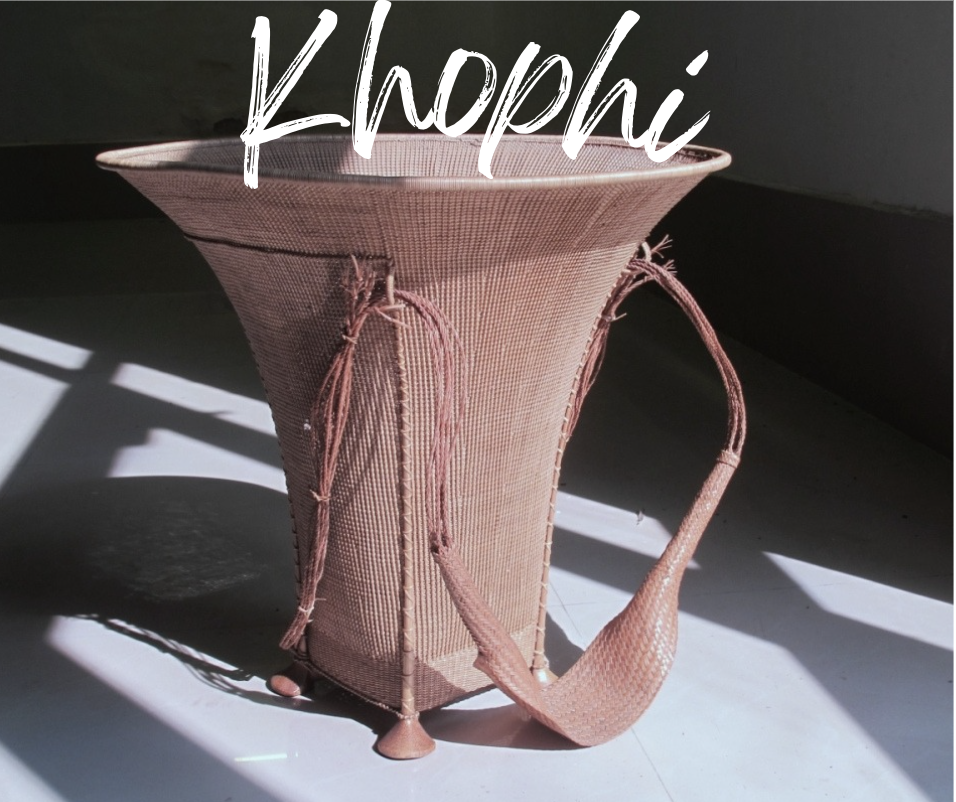Hypothetical Brand Building For A Sustainable Home Furnishing Brand
May 05, 2024 | Purbasha Giri
 Read the full blog to understand and build a successful home furnishing brand.
Read the full blog to understand and build a successful home furnishing brand. ABOUT THE BRAND:
Harmony Heaven is committed to creating a sustainable haven for homes, where every product is crafted with care for both the environment and the well-being of the people. We believe in harmonising modern living with the beauty of nature, bringing eco-consciousness into every home.
Sustainable Sourcing:
At the heart of Harmony Heaven lies a dedication to sustainable sourcing. We meticulously select materials that leave a minimal ecological footprint, favoring responsibly sourced wood for our furniture, GOTS-certified organic cotton for our bedding, and fast-growing bamboo for various creations. Our commitment is not just to create beautiful products but to contribute to a healthier planet.
Key Principles:
Environmental Impact: Harmony Heaven is committed to sourcing materials that have minimal environmental impact. This includes choosing renewable resources, reducing carbon footprints, and avoiding materials that contribute to deforestation or habitat destruction.
Social Responsibility: The brand places a strong emphasis on sourcing materials produced under fair labor conditions. This involves working with suppliers who adhere to ethical labor practices, ensuring the well-being of workers involved in the production process.
Ethical Practices: Harmony Heaven engages in transparent and fair business practices with suppliers. The brand seeks to eliminate any form of exploitation, child labor, or unfair wages within its supply chain.
Quality Standards: While prioritizing sustainability, Harmony Heaven maintains high-quality standards for sourced materials, ensuring that eco-friendly choices do not compromise the durability and performance of the final products.
3. Sourcing Materials:
Recycled and Upcycled Materials: Harmony Heaven actively seeks materials with recycled content or utilizes upcycled materials to reduce the demand for virgin resources.
Certified Wood: The brand prioritizes certified wood from sustainably managed forests, ensuring responsible forestry practices and biodiversity conservation.
Organic Textiles: For fabric-based products, Harmony Heaven sources organic textiles, such as cotton or hemp, produced without synthetic pesticides or harmful chemicals.
Natural Dyes: When applicable, the brand opts for natural dyes, minimizing the use of toxic chemicals and promoting a safer and healthier environment.
. Supplier Collaboration:
Partnerships with Like-minded Suppliers: Harmony Heaven builds collaborative relationships with suppliers who share the brand's commitment to sustainability. This collaboration extends to sharing best practices, innovations, and jointly addressing challenges in sustainable sourcing.
Certifications and Verification:
Seeking Recognized Certifications: Harmony Heaven actively seeks materials with certifications such as FSC (Forest Stewardship Council), Global Organic Textile Standard (GOTS), and other recognized eco-labels to verify the sustainability claims of sourced materials.
Audits and Assessments: The brand conducts regular audits and assessments of its suppliers to ensure compliance with sustainable sourcing standards.
Continuous Improvement:
Innovation in Sourcing: Harmony Heaven invests in research and development to explore innovative and sustainable materials. This involves staying abreast of advancements in eco-friendly sourcing to continuously improve the brand's environmental footprint.
Educational Initiatives:
Supplier Training Programs: Harmony Heaven supports its suppliers by providing training programs on sustainable practices, aiming to create a shared understanding of the brand's sustainability goals and foster a collective commitment to responsible sourcing.
Communication and Transparency:
Transparent Reporting: Harmony Heaven communicates transparently about its sourcing practices, providing stakeholders, including B2B clients, with information about the origin and sustainability credentials of the materials used.
Consumer and Client Education:
Educational Campaigns: The brand engages in educational campaigns to raise awareness among B2B clients and end consumers about the importance of sustainable sourcing and its positive impact on the environment and communities.
Traceability Systems:
Establishing Traceability: Harmony Heaven aims to establish traceability systems within its supply chain, allowing B2B clients and consumers to trace the journey of materials from source to finished product.
Artisanal Craftsmanship:
Every piece at Harmony Heaven is a work of art, crafted with precision by skilled artisans who share our passion for sustainability. Our products bear the mark of their hands, showcasing the beauty that emerges when traditional craftsmanship meets contemporary design. We believe in supporting local communities, empowering artisans, and preserving age-old techniques.
Key Principles:
Preservation of Traditional Techniques: Harmony Heaven is dedicated to preserving traditional crafting techniques passed down through generations. By integrating these techniques into modern designs, the brand ensures the continuity of cultural heritage and craftsmanship.
Fair Compensation: The brand values the contribution of artisans and ensures fair compensation for their craftsmanship. This commitment extends to supporting local communities and sustaining livelihoods.
Collaboration with Artisan Communities:
Global and Local Partnerships: Harmony Heaven establishes partnerships with artisan communities globally and locally. These collaborations empower artisans, provide them with a platform to showcase their skills, and create a bridge between traditional craftsmanship and contemporary design.
Customization and Personalization:
Tailored Artistry: Harmony Heaven offers customizable options, allowing B2B clients to collaborate on bespoke designs. This not only adds a personal touch to the products but also supports the artisan's ability to express their creativity.
Diversity in Craftsmanship:
Range of Artisan Techniques: Harmony Heaven incorporates a diverse range of artisan techniques, including hand weaving, pottery, metalwork, and intricate hand-carving. This diversity ensures a rich and varied product portfolio.
Training and Skill Development:
Empowering Artisans: The brand invests in training and skill development programs to empower artisans. This not only enhances their expertise but also opens avenues for exploring innovative applications of traditional techniques.
Sustainable Materials:
Responsible Material Choices: Harmony Heaven ensures that artisans work with sustainable and eco-friendly materials. This aligns with the brand's commitment to environmental consciousness throughout the crafting process.
Small-Batch Production:
Quality over Quantity: Harmony Heaven emphasizes small-batch production to maintain the highest standards of quality. This approach allows for meticulous attention to detail and ensures that each piece is a true work of art.
Artisan Stories:
Narrative Integration: Each product at Harmony Heaven comes with the unique story of the artisan who crafted it. This storytelling approach not only adds value to the product but also fosters a connection between B2B clients and the artisans behind the creations.
Cultural Heritage Preservation:
Cultural Respect: Harmony Heaven approaches artisanal craftsmanship with cultural sensitivity, respecting the traditions and stories woven into each piece. This commitment extends to preserving cultural heritage and fostering appreciation among clients.
Artisan Collaborations in Design:
Co-Creation: Harmony Heaven engages in collaborative design processes with artisans, fostering a sense of co-creation. This ensures that traditional techniques seamlessly merge with modern aesthetics, creating timeless and culturally resonant pieces.
Product Categories:
Sustainable Wood Dining Tables: Crafted from responsibly sourced wood, designed to bring nature to your dining experience.
Bamboo Lounge Chairs: Elegant lounge chairs made from fast-growing bamboo, providing a comfortable and eco-friendly seating option.
Organic Bedding:
Organic Cotton Bed Sheets: Luxurious bed sheets made from GOTS-certified organic cotton for a soft and sustainable sleep.
Eco-Fiber Pillows: Pillows filled with plant-based fibers, offering support and comfort while being environmentally conscious.
Natural Fiber Rugs:
Jute Area Rugs: Handwoven jute rugs, adding texture and warmth to your living spaces while promoting sustainable practices.
Recycled Glass Décor:
Recycled Glass Vases: Artisan-crafted vases made from recycled glass, offering a unique and eco-friendly touch to your home decor.
Upcycled Glass Candle Holders: Elegant candle holders created from repurposed glass, providing a stylish and sustainable accent.
Handwoven Textiles:
Organic Cotton Throw Blankets: Cosy and sustainable throw blankets made from organic cotton, perfect for chilly evenings.
Handwoven Hemp Cushion Covers: Cushion covers crafted from durable hemp fibers, adding a touch of nature to your living space.
Natural Light Fixtures:
Bamboo Pendant Lights: Stylish pendant lights made from bamboo, creating a warm and inviting atmosphere with an eco-friendly design.
Zero-Waste Kitchenware:
Bamboo Fiber Dinnerware: Lightweight and durable dinnerware made from sustainable bamboo fiber, promoting zero-waste living.
Recycled Glass Tumblers: Tumblers crafted from recycled glass, providing an eco-conscious alternative for everyday use.
Indoor Plants and Planters:
Sustainable Planters: Planters made from recycled materials, offering a stylish home for your favorite indoor plants.
Air-Purifying Indoor Plants: Curated selection of plants known for their air-purifying properties, promoting a healthier indoor environment.
Marketing Strategy
1. Content Marketing:
Embrace a content-rich approach to showcase Harmony Heaven's sustainability initiatives, product stories, and the positive impact of choosing eco-friendly options. Utilize blog posts, case studies, and whitepapers to emphasize the brand's commitment to environmental consciousness.
2. Social Media Engagement:
Engage B2B clients through professional platforms like LinkedIn and Instagram. Share visually appealing content, success stories, and updates on new product launches. Employ social media advertising to target businesses in both Tier 1 and Tier 2 cities.
3. Industry Events and Trade Shows:
Actively participate in relevant industry events, trade shows, and expos to establish a physical presence. This allows Harmony Heaven to network with potential B2B clients, showcase products, and stay updated on industry trends.
4. Search Engine Optimization (SEO):
Optimize the website and content for search engines to ensure Harmony Heaven is easily discoverable when B2B clients search for sustainable home decor solutions. Focus on keywords related to eco-friendly office decor and hospitality furnishings.
5. Email Marketing:
Implement targeted email campaigns to reach out to potential B2B clients. Provide newsletters with updates on new product releases, sustainability initiatives, and exclusive offers for bulk orders.
6. Collaborations and Partnerships:
Forge collaborations with interior designers, architects, and sustainability-focused organizations. Partnerships can amplify Harmony Heaven's reach within the B2B space, leading to more opportunities for commercial projects.
7. Online B2B Platforms:
List Harmony Heaven on prominent B2B e-commerce platforms such as Alibaba, ThomasNet, and Global Sources. These platforms connect manufacturers with businesses looking for sustainable home decor solutions on a larger scale.
8. Dedicated B2B Website Portal:
Create a dedicated B2B portal on Harmony Heaven's website, providing easy navigation for businesses to browse products, request quotes, and access exclusive resources tailored to their needs.
9. Virtual Showrooms and 3D Tours:
Develop virtual showrooms or 3D tours that allow B2B clients to explore Harmony Heaven's product range remotely. This can be especially beneficial for businesses in Tier 2 cities where physical visits might be less feasible.
10. Sustainability Certifications and Badges:
Highlight sustainability certifications prominently on all marketing materials and the website. These certifications act as trust signals for businesses seeking eco-friendly suppliers.
11. Influencer Marketing:
Collaborate with influencers in the sustainability and interior design space. Their endorsements can enhance credibility and reach a broader audience within the B2B sector.
Sales Channels:
1. E-commerce Platform for B2B:
Implement a user-friendly B2B e-commerce platform on the official Harmony Heaven website, allowing businesses to place orders, track shipments, and manage accounts efficiently.
2. Direct Sales Team:
Maintain a dedicated sales team to handle direct inquiries, client relationships, and custom project consultations. This team can reach out to potential clients directly and provide personalized assistance.
3. Strategic Retail Partnerships:
Form strategic partnerships with eco-conscious retail chains and office furniture suppliers to expand distribution channels. This enables Harmony Heaven to reach businesses in Tier 1 and Tier 2 cities through established retail networks.
4. Bulk Order Discounts and Incentives:
Offer competitive pricing for bulk orders along with additional incentives for long-term partnerships. This encourages businesses to choose Harmony Heaven as their preferred sustainable home decor supplier.
Porter's Five Forces model analyzes the competitive forces within an industry, providing insights into the overall attractiveness and competitiveness of that industry. In the context of a sustainable home furnishing brand, let's analyze the forces:
1. Supplier Power:
Sustainable Material Suppliers:The power of suppliers may be moderate as sustainable home furnishing brands often rely on a niche group of suppliers providing eco-friendly and responsibly sourced materials.
Switching Costs:Switching to alternative suppliers may be challenging due to the specific requirements for sustainable materials, giving suppliers moderate power.
2. Buyer Power:
Eco-Conscious Consumers:The increasing awareness and demand for sustainable products give buyers substantial power.
Product Differentiation:The ability to differentiate products based on sustainability practices and certifications may mitigate some buyer power.
3. Threat of New Entrants:
Barriers to Entry:High barriers may exist due to the need for extensive knowledge of sustainable sourcing, eco-friendly manufacturing processes, and establishing a reputation for environmental responsibility.
Brand Recognition:Existing sustainable home furnishing brands with established reputations may deter new entrants.
4. Threat of Substitutes:
Limited Substitutes:There may be limited substitutes for sustainable home furnishing products, especially for consumers specifically seeking eco-friendly options, reducing the threat.
5. Competitive Rivalry:
Niche Market: The sustainable home furnishing sector may be considered a niche market, limiting the number of direct competitors.
Innovation and Differentiation:Brands may differentiate themselves through innovative sustainable practices, design, and ethical considerations.
Industry Growth:The overall growth of the sustainable living market may encourage more players, intensifying competitive rivalry over time.
Overall Implications:
- The supplier power and barriers to entry may moderate the overall attractiveness of the industry, making it challenging for new entrants.
- Buyer power is significant, but differentiation and the unique value proposition of sustainability can mitigate this power.
- Limited substitutes and a niche market contribute to the industry's attractiveness.
- Competitive rivalry is influenced by the level of differentiation, innovation, and the overall growth trajectory of the sustainable home furnishing market.
The BCG Matrix:
The BCG Matrix, also known as the Boston Consulting Group Matrix, is a strategic management tool that helps businesses analyse and categorise their product or service portfolio based on two key factors: market growth rate and relative market share. Developed by the Boston Consulting Group, the matrix provides a visual representation of a company's product portfolio and helps guide strategic decision-making. The matrix classifies products into four categories:
1.Stars:
Description: Products in high-growth markets with a high relative market share.
Strategy:Invest heavily to maintain and strengthen their market position. As the market grows, stars have the potential to become market leaders.
2. Cash Cows:
Description:Products in mature, slow-growth markets with a high relative market share.
Strategy:Generate consistent cash flow. As market growth is slow, focus on maximising profitability and consider reinvesting earnings in other areas or business units.
3. Question Marks (Problem Child):
Description:Products in high-growth markets with a low relative market share.
Strategy:Require careful consideration. They have the potential for growth but also involve high risk. Decide whether to invest to increase market share or divest if growth prospects are not favourable.
4. Dogs:
Description:Products in low-growth markets with a low relative market share.
Strategy:Typically have limited growth potential. Consider whether to divest or maintain at a minimal level to support other products. Resources may be better allocated elsewhere.
Recommended








